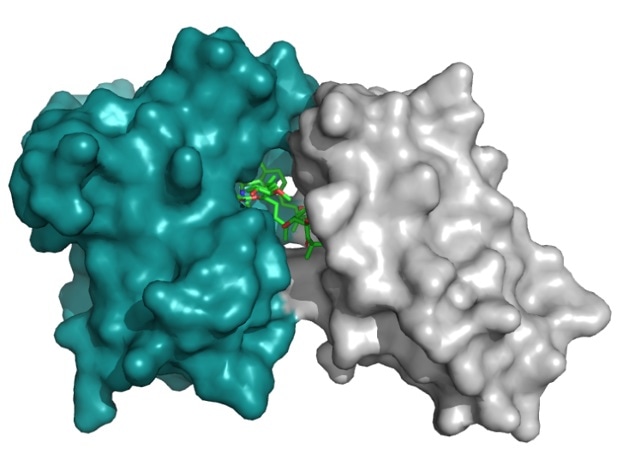Scientists from the University of Birmingham and the University of Leicester developed a new screening method that tests the effectiveness of therapeutic molecules developed to “glue” proteins together in the body.

Image Credit: University of Birmingham.
This study opens up the possibilities for drug developers to screen large numbers of potential new drug compounds to discover new treatments for diseases like Parkinson’s and breast cancer.
Protein-protein interactions are fundamental to all cell functions and these interactions reinforce the functions of a healthy body. Any change in the interactions results in diseases.
The protein interactions can be broken apart with some drugs designed for the purpose, and this disruption halts the progress of the disease. In some cases, the disease is caused when protein interactions do not occur or when they do not occur in the right way. Hence, new drugs that facilitate the “gluing” of proteins will be effective; however, finding them is not a straightforward process.
Scientists from the University of Birmingham’s School of Biosciences developed a system that employs mass spectrometry to measure the precise mass of a pair of proteins, along with the “glue,” and to identify the strongest “glue” that would likely be the most successful in treating the disease. The study findings have been published in the journal Chemical Science.
A healthy body depends very much on the cells’ proteins being able to signal effectively. Any wrong signal can lead to disease and that could be the wrong proteins sticking together—or proteins not joining up as they should. We want a drug that corrects for this. Our methods provide a ‘snapshot’ of what is happening to the proteins when we add a potential drug so we can see quickly whether the ‘glue’ is working.”
Dr Aneika Leney, Study Lead Author, School of Biosciences, University of Birmingham
The researchers collaborated with chemical biologists at the University of Leicester to test the method on therapeutic compounds studied by co-lead author Dr. Richard Doveston and his associates.
Looking for molecules that act as glues is not easy because things are complicated by having two proteins in the mix. At the early stage of development we often just want to find molecules that are good starting points for development, so they might not be that good as glues at this stage.”
Dr Richard Doveston, Study Co-Lead Author, University of Leicester
“The current high-throughput screening methods available to us are usually not very effective in this context. The mass spectrometry method is great because we can learn so much from the data and it can be gathered relatively easily and quickly,” added Doveston.
He further stated, “Because the glue compounds are highly specific to the identified proteins, interactions with other proteins are rare, so the therapy is unlikely to produce any unlooked-for effects.”
We hope our approach will be taken up by pharmaceutical companies and used to rapidly screen and test promising drug compounds that can bind proteins together to deliver a therapeutic benefit.”
Dr Aneika Leney, Study Lead Author, School of Biosciences, University of Birmingham
Source:
Journal reference:
Bellamy-Carter, J., et al. (2021) Discovering protein–protein interaction stabilisers by native mass spectrometry. Chemical Science. doi.org/10.1039/D1SC01450A.